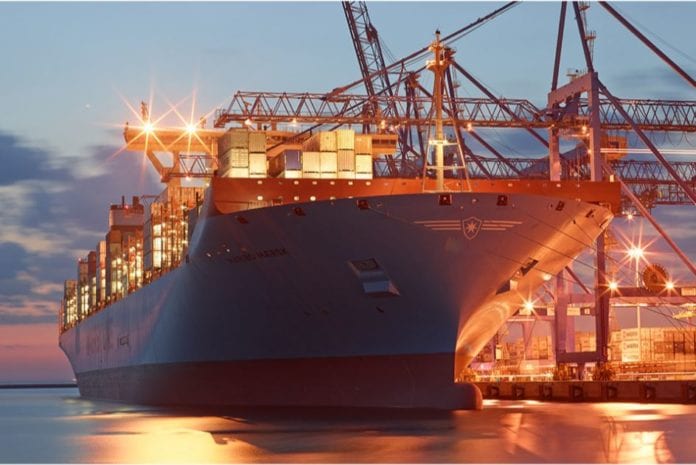An essential task
Dozens of companies from around the world navigate our oceans to deliver more than 90% of the world’s cargo, according to Ericsson. And Maersk Line, a shipping company based in Denmark, claims to have the biggest fleet of them all.
With more than 550 ships that have a combined 2.6 million 20-foot equivalent units, Maersk deemed it essential to look at an industrial “internet of things” solution to connect its vessels and maximize efficiency.
https://www.youtube.com/watch?v=HfCmFz5oHb4
“Talking about network society and machine-to-machine, I believe shipping is pretty much in the stone ages – it is right now,” said Niels Bruus, head of fleet management at Maersk Line, at the time of the deployment. “The connected vessel is just the start, I am sure. There is no doubt this will be the cornerstone in our future approach in how efficient we can operate our fleet and our network.”
Industrial IoT on the sea: a groundbreaking solution
Maersk Line began working with Ericsson in 2011, first on the Remote Container Management Project, an initiative designed to monitor the more than 17 million containers the company transports. The project is said to have helped create the world’s largest floating mobile network across the 125 countries Maersk said its containers travel through. The Remote Container Management Project connected 350 vessels to give Maersk the ability to more closely monitor each of its containers and give the company a higher degree of control over the entire shipping process.

“Ericsson has, for our project, managed to transform the capabilities from a shore-based DSM network provider into what we needed – and that was the world’s largest floating DSM network,” Bruus said. “The partnership with Ericsson was about bringing all of our vessels online.”
The future of floating networks
The wireless network is designed to collect data to allow the company to continue to innovate in areas including maximizing efficiency when delivering cargo, environmentally friendly processes and adaptability to unpredictable sea conditions.
“One of the things the solution has enabled for Maersk Line is for us to monitor the fleet live as the vessels are conducting the voyage,” Bruus said. “So that means every time there is an incident that is less than optimal for the most optimal production of the voyage, we can interfere immediately and be proactive and change the behavior as it happens.”

Ericsson said the project shows there is no place on Earth that cannot be connected, and that industries can optimize their processes no matter what they are or where they operate from.

